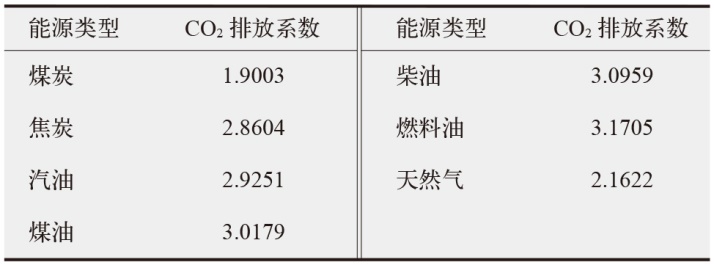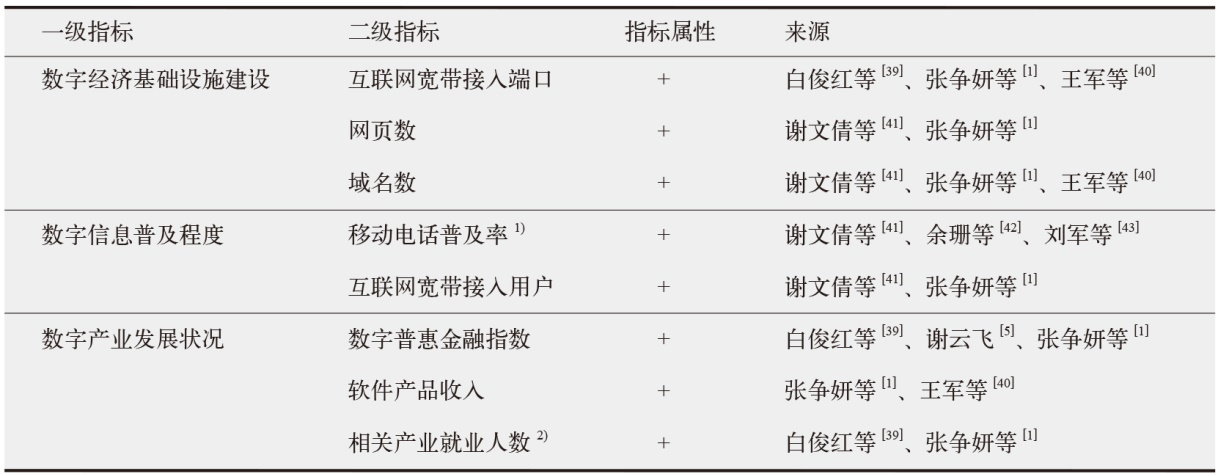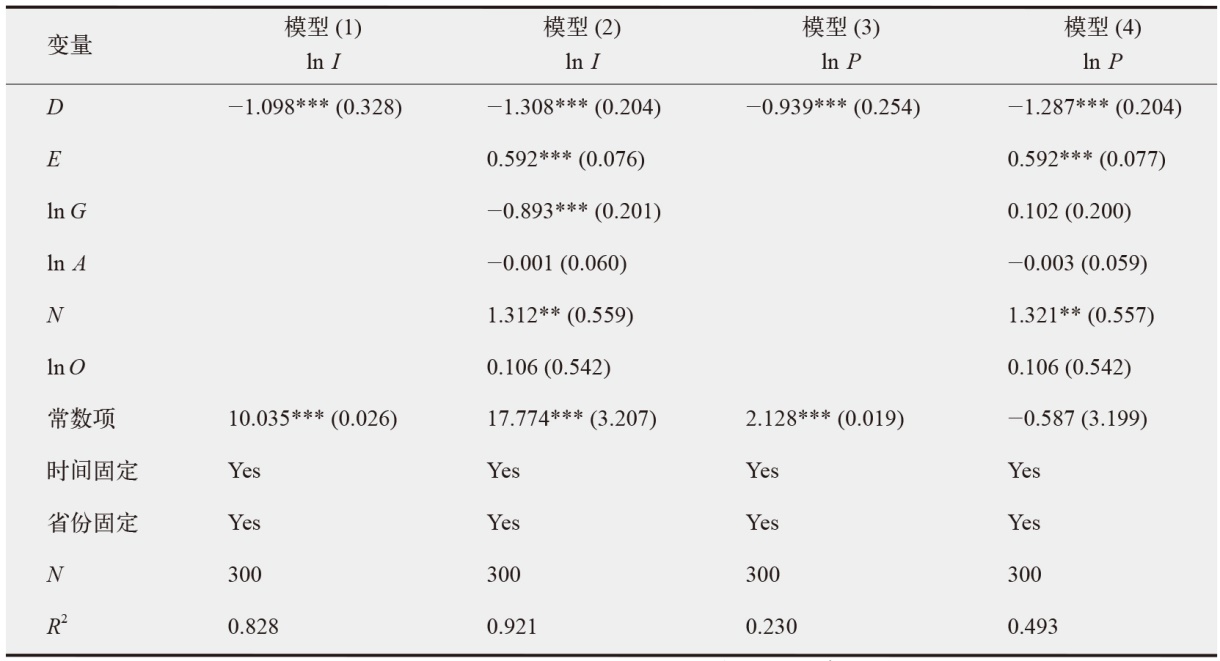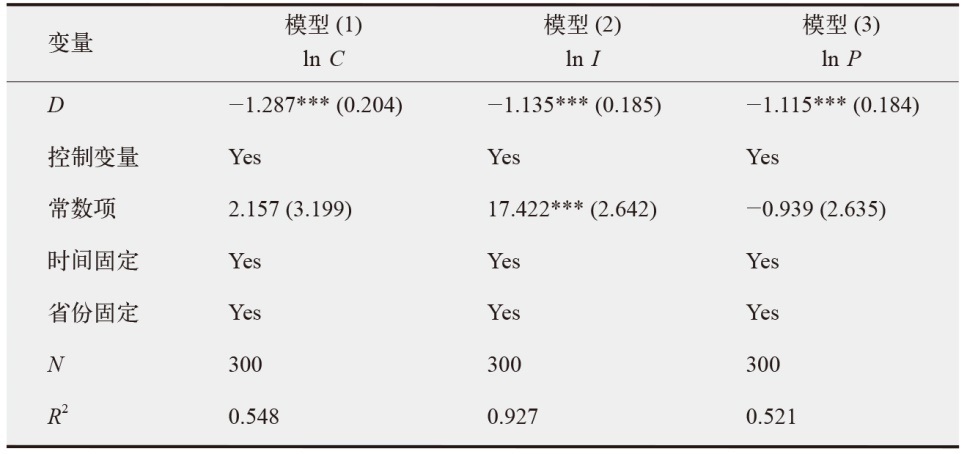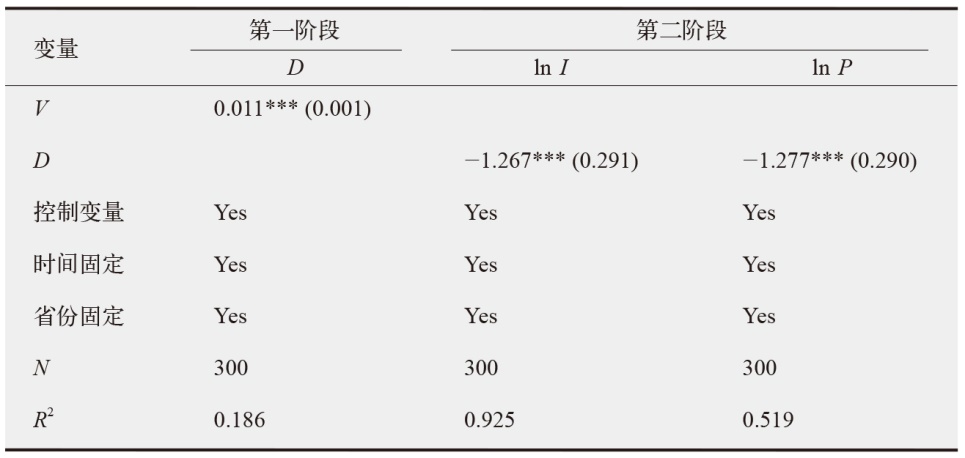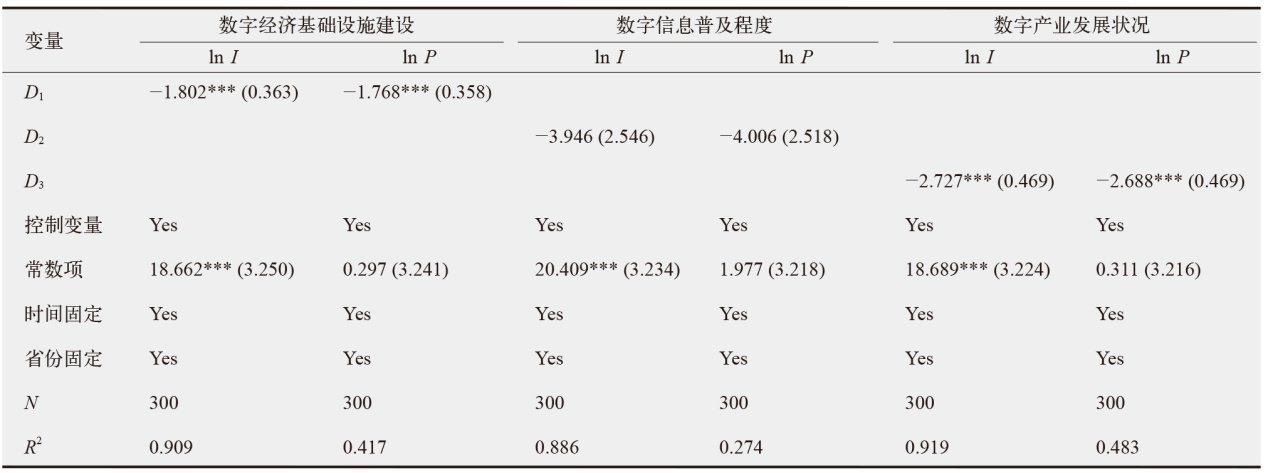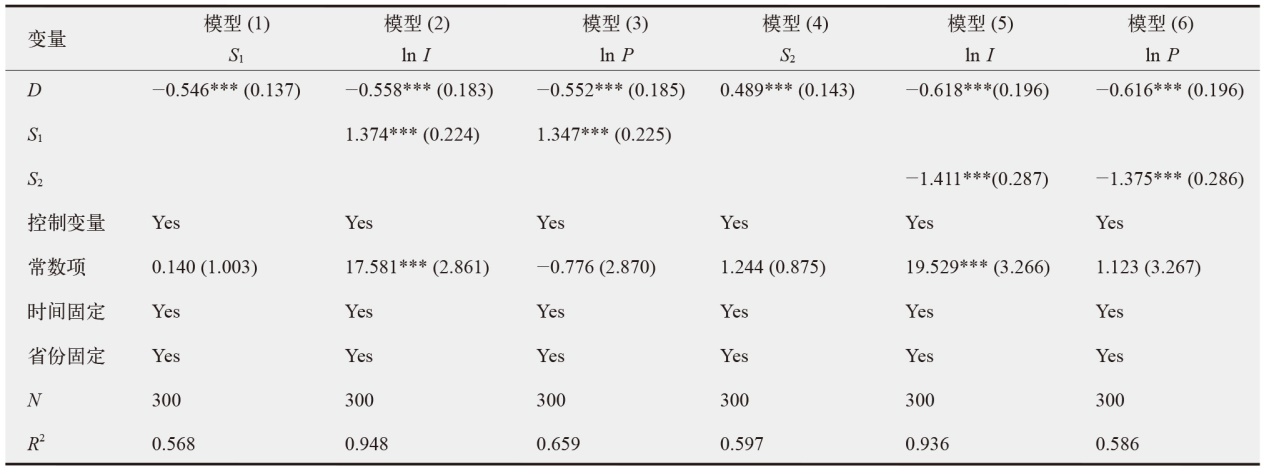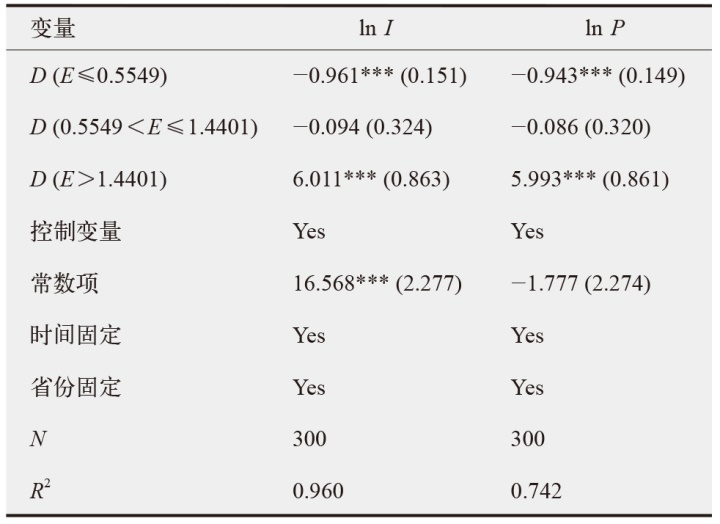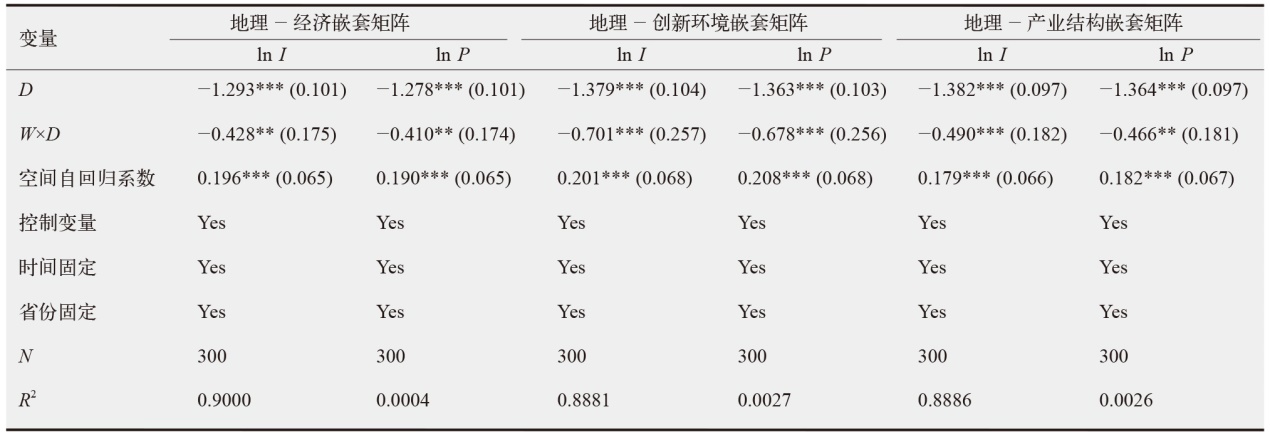Climate Change Research ›› 2024, Vol. 20 ›› Issue (4): 440-453.doi: 10.12006/j.issn.1673-1719.2024.067
• Mitigation to Climate Change • Previous Articles Next Articles
Digital economy empowers “Dual Carbon” goals: influence mechanism and implementation path
- 1 Faculty of Applied Economics, University of Chinese Academy of Social Sciences, Beijing 102488, China
2 Research Institute for Eco-Civilization, Chinese Academy of Social Sciences, Beijing 100710, China
3 Research Center for Sustainable Development, Chinese Academy of Social Sciences, Beijing 100732, China
-
Received:2024-04-17Revised:2024-06-09Online:2024-07-30Published:2024-07-19 -
Contact:WANG Mou E-mail:liuliwen7577@163.com;wangm_cass@163.com
Cite this article
LIU Li-Wen, WANG Mou. Digital economy empowers “Dual Carbon” goals: influence mechanism and implementation path[J]. Climate Change Research, 2024, 20(4): 440-453.
share this article
Add to citation manager EndNote|Ris|BibTeX
URL: https://www.climatechange.cn/EN/10.12006/j.issn.1673-1719.2024.067
| [1] | 张争妍, 李豫新. 数字经济对我国碳排放的影响研究[J]. 财经理论与实践, 2022, 43 (5): 146-154. |
| Zhang Z Y, Li Y X. Research on the impact of digital economy on carbon emissions in China[J]. The Theory and Practice of Finance and Economics, 2022, 43 (5): 146-154 (in Chinese) | |
| [2] | Gonel F, Akinci A. How does ICT-use improve the environment? The case of Turkey[J]. World Journal of Science, Technology and Sustainable Development, 2018, 15 (1): 2-12 |
| [3] | Salahuddin M, Alam K, Ozturk I. The effects of internet usage and economic growth on CO2 emissions in OECD countries: a panel investigation[J]. Renewable and Sustainable Energy Reviews, 2016, 62: 1226-1235 |
| [4] | Shahnazi R, Dehghan S Z. The effects of spatial spillover information and communications technology on carbon dioxide emissions in Iran[J]. Environmental Science and Pollution Research, 2019, 26: 24198-24212 |
| [5] | 谢云飞. 数字经济对区域碳排放强度的影响效应及作用机制[J]. 当代经济管理, 2022, 44 (2): 68-78. |
| Xie Y F. The effect and mechanism of digital economy on regional carbon emission intensity[J]. Contemporary Economic Management, 2022, 44 (2): 68-78 (in Chinese) | |
| [6] | 张修凡, 范德成. 数字经济发展赋能我国低碳经济转型研究: 基于国家级大数据综合试验区的分析[J]. 科技进步与对策, 2023, 40 (19): 118-128. |
| Zhang X F, Fan D C. The development of digital economy empowering China’s low carbon economy transformation: an analysis of national big data comprehensive pilot zones[J]. Science & Technology Progress and Policy, 2023, 40 (19): 118-128 (in Chinese) | |
| [7] | Zhang L, Mu R, Zhan Y, et al. Digital economy, energy efficiency, and carbon emissions: evidence from provincial panel data in China[J]. Science of the Total Environment, 2022, 852: 158403 |
| [8] | Hao X, Wen S, Li Y, et al. Can the digital economy development curb carbon emissions? Evidence from China[J]. Frontiers in Psychology, 2022, 13: 938918 |
| [9] |
徐维祥, 周建平, 刘程军. 数字经济发展对城市碳排放影响的空间效应[J]. 地理研究, 2022, 41 (1): 111-129.
doi: 10.11821/dlyj020210459 |
| Xu W X, Zhou J P, Liu C J. The impact of digital economy on urban carbon emissions: based on the analysis of spatial effects[J]. Geographical Research, 2022, 41 (1): 111-129 (in Chinese) | |
| [10] | Yang G, Wang F, Deng F, et al. Impact of digital transformation on enterprise carbon intensity: the moderating role of digital information resources[J]. International Journal of Environmental Research and Public Health, 2023, 20 (3): 2178 |
| [11] | Pouri M J, Hilty L M. ICT-enabled sharing economy and environmental sustainability: a resource-oriented approach[C]// Advances and new trends in environmental informatics: managing disruption, big data and open science. Springer International Publishing, 2018: 53-65 |
| [12] | Hilty L M, Aebischer B. ICT for sustainability: an emerging research field[J]. ICT Innovations for Sustainability, 2015: 3-36 |
| [13] | 陈晓东, 杨晓霞. 数字经济发展对产业结构升级的影响: 基于灰关联熵与耗散结构理论的研究[J]. 改革, 2021, 325 (3): 26-39. |
| Chen X D, Yang X X. The impact of digital economic development on the upgrading of industrial structure: based on the research of grey relational entropy and dissipative structure theory[J]. Reform, 2021, 325 (3): 26-39 (in Chinese) | |
| [14] | Lyu Y, Ji Z, Liang H, et al. Has information infrastructure reduced carbon emissions? Evidence from panel data analysis of Chinese cities[J]. Buildings, 2022, 12 (5): 619 |
| [15] | He J K. China’s INDC and non-fossil energy development[J]. Advances in Climate Change Research, 2015, 6 (3-4): 210-215 |
| [16] | Jiao J, Song J, Ding T. The impact of synergistic development of renewable energy and digital economy on energy intensity: evidence from 33 countries[J]. Energy, 2024, 295: 130997 |
| [17] | Lee C C, Fang Y, Quan S, et al. Leveraging the power of artificial intelligence toward the energy transition: the key role of the digital economy[J]. Energy Economics, 2024: 107654 |
| [18] | Thanh T T, Ha L T, Dung H P, et al. Impacts of digitalization on energy security: evidence from European countries[J]. Environment, Development and Sustainability, 2023, 25 (10): 11599-11644 |
| [19] | Shahbaz M, Wang J, Dong K, et al. The impact of digital economy on energy transition across the globe: the mediating role of government governance[J]. Renewable and Sustainable Energy Reviews, 2022, 166: 112620 |
| [20] | Bhatt J G, Jani O K. E-governance for smart cities[M]. Singapore: Springer, 2015: 177-230 |
| [21] | Miskiewicz R. Clean and affordable energy within sustainable development goals: the role of governance digitalization[J]. Energies, 2022, 15 (24): 9571 |
| [22] | 曾鸣, 杨雍琦, 刘敦楠, 等. 能源互联网“源-网-荷-储”协调优化运营模式及关键技术[J]. 电网技术, 2016, 40 (1): 114-124. |
| Zeng M, Yang Y Q, Liu D N, et al. “Generation-Grid-Load-Storage” coordinative optimal operation mode of energy internet and key technologies[J]. Power System Technology, 2016, 40 (1): 114-124 (in Chinese) | |
| [23] | Takase K, Murota Y. The impact of IT investment on energy: Japan and US comparison in 2010[J]. Energy Policy, 2004, 32 (11): 1291-1301 |
| [24] | Lange S, Pohl J, Santarius T. Digitalization and energy consumption. Does ICT reduce energy demand?[J]. Ecological Economics, 2020, 176: 106760 |
| [25] | Allan G, Gilmartin M, McGregor P, et al. Economics of energy efficiency[M]// International Handbook on the Economics of Energy. UK: Edward Elgar Publishing, 2009 |
| [26] | Zheng R, Wu G, Cheng Y, et al. How does digitalization drive carbon emissions? The inverted U-shaped effect in China[J]. Environmental Impact Assessment Review, 2023, 102: 107203 |
| [27] | Stern D I. The role of energy in economic growth[J]. Annals of the New York Academy of Sciences, 2011, 1219 (1): 26-51 |
| [28] | Nel W P, Cooper C J. Implications of fossil fuel constraints on economic growth and global warming[J]. Energy Policy, 2009, 37 (1): 166-180 |
| [29] | 史丹. 我国经济增长过程中能源利用效率的改进[J]. 经济研究, 2002 (9): 49-56, 94. |
| Shi D. The improvement of energy consumption efficiency in China’s economic growth[J]. Economic Research Journal, 2002 (9): 49-56, 94 | |
| [30] | 陈堂, 陈光. 数字化转型对产业融合发展的空间效应: 基于省域空间面板数据[J]. 科技管理研究, 2021, 41 (4): 124-132. |
| Chen T, Chen G. Spatial effect of digital transformation innovation on industrial convergence: based on interprovincial spatial panel data[J]. Science and Technology Management Research, 2021, 41 (4): 124-132 (in Chinese) | |
| [31] | Luo S, Yimamu N, Li Y, et al. Digitalization and sustainable development: how could digital economy development improve green innovation in China?[J]. Business Strategy and the Environment, 2023, 32 (4): 1847-1871 |
| [32] | Liu L, Ding T, Wang H. Digital economy, technological innovation and green high-quality development of industry: a study case of China[J]. Sustainability, 2022, 14 (17): 11078 |
| [33] |
温忠麟, 叶宝娟. 中介效应分析: 方法和模型发展[J]. 心理科学进展, 2014, 22 (5): 731-745.
doi: 10.3724/SP.J.1042.2014.00731 |
|
Wen Z L, Ye B J. Analyses of mediating effects: the development of methods and models[J]. Advances in Psychological Science, 2014, 22 (5): 731-745 (in Chinese)
doi: 10.3724/SP.J.1042.2014.00731 |
|
| [34] | Jaffe A B. Technology opportunity and spillovers of R&D: evidence from firms patents, profits, and market value[J]. Economics, Engineering Corporate Finance: Valuation, 1986, 76: 984-1001 |
| [35] | Paci R, Usai S. Knowledge flows across European regions[J]. The Annals of Regional Science, 2009, 43: 669-690 |
| [36] | 杨海生, 陈少凌, 周永章. 地方政府竞争与环境政策: 来自中国省份数据的证据[J]. 南方经济, 2008 (6): 15-30. |
| Yang H S, Chen S L, Zhou Y Z. Local government competition and environmental policy empirical: evidence from province governments in China[J]. South China Journal of Economics, 2008 (6): 15-30 (in Chinese) | |
| [37] | 黄亮雄, 王贤彬, 刘淑琳. 经济增长目标与激进城镇化: 来自夜间灯光数据的证据[J]. 世界经济, 2021, 44 (6): 97-122. |
| Huang L X, Wang X B, Liu S L. Economic growth target and radical urbanization: evidence from satellite night-light data[J]. The Journal of World Economy, 2021, 44 (6): 97-122 (in Chinese) | |
| [38] | 王雅晴, 谭德明, 张佳田, 等. 我国城市发展与能源碳排放关系的面板数据分析[J]. 生态学报, 2020, 40 (21): 7897-7907. |
| Wang Y Q, Tan D M, Zhang J T, et al. The impact of urbanization on carbon emissions: analysis of panel data from 158 cities in China[J]. Acta Ecologica Sinica, 2020, 40 (21): 7897-7907 (in Chinese) | |
| [39] | 白俊红, 陈新. 数字经济、空间溢出效应与区域创新效率[J]. 研究与发展管理, 2022, 34 (6): 67-78. |
| Bai J H, Chen X. Digital economy, spatial spillover effect and regional innovation efficiency[J]. R&D Management, 2022, 34 (6): 67-78 (in Chinese) | |
| [40] | 王军, 朱杰, 罗茜. 中国数字经济发展水平及演变测度[J]. 数量经济技术经济研究, 2021, 38 (7): 26-42. |
| Wang J, Zhu J, Luo Q. Research on the measurement of China’s digital economy development and the characteristics[J]. Journal of Quantitative & Technological Economics, 2021, 38 (7): 26-42 (in Chinese) | |
| [41] | 谢文倩, 高康, 余家凤. 数字经济、产业结构升级与碳排放[J]. 统计与决策, 2022, 38 (17): 114-118. |
| Xie W Q, Gao K, Yu J F. Digital economy, industrial structure upgrading, and carbon emissions[J]. Statistics & Decision, 2022, 38 (17): 114-118 (in Chinese) | |
| [42] | 余姗, 樊秀峰, 蒋皓文. 数字经济发展对碳生产率提升的影响研究[J]. 统计与信息论坛, 2022, 37 (7): 26-35. |
| Yu S, Fan X F, Jiang H W. Research on the impact of digital economy development on carbon productivity improvement[J]. Journal of Statistics and Information, 2022, 37 (7): 26-35 (in Chinese) | |
| [43] | 刘军, 杨渊鋆, 张三峰. 中国数字经济测度与驱动因素研究[J]. 上海经济研究, 2020 (6): 81-96. |
| Liu J, Yang Y Y, Zhang S F. Research on the measurement and driving factors of China’s digital economy[J]. Shanghai Journal of Economics, 2020 (6): 81-96 (in Chinese) | |
| [44] | 邵帅, 李欣, 曹建华, 等. 中国雾霾污染治理的经济政策选择: 基于空间溢出效应的视角[J]. 经济研究, 2016, 51 (9): 73-88. |
| Shao S, Li X, Cao J H, et al. China’s economic policy choices for governing smog pollution based on spatial spillover effects[J]. Economic Research Journal, 2016, 51 (9): 73-88 (in Chinese) | |
| [45] | Zhang D, Zhao M, Wang Y, et al. Technological innovation and its influence on energy risk management: unpacking China’s energy consumption structure optimization amidst climate change[J]. Energy Economics, 2024, 131: 107321. |
| [46] | 刘传明, 孙喆, 张瑾. 中国碳排放权交易试点的碳减排政策效应研究[J]. 中国人口?资源与环境, 2019, 29 (11): 49-58. |
| Liu C M, Sun Z, Zhang J. Research on the effect of carbon emission reduction policy in China’s carbon emissions trading pilot[J]. China Population, Resources and Environment, 2019, 29 (11): 49-58 (in Chinese) | |
| [47] | 赵涛, 张智, 梁上坤. 数字经济、创业活跃度与高质量发展: 来自中国城市的经验证据[J]. 管理世界, 2020, 36 (10): 65-76. |
| Zhao T, Zhang Z, Liang S K. Digital economy, entrepreneurship, and high-quality economic development: empirical evidence from urban China[J]. Journal of Management World, 2020, 36 (10): 65-76 (in Chinese) | |
| [48] | Meng Z, Li W B, Chen C, et al. Carbon emission reduction effects of the digital economy: mechanisms and evidence from 282 cities in China[J]. Land, 2023, 12: 773 |
| [49] |
Dong F, Li Y, Qin C, et al. Information infrastructure and greenhouse gas emission performance in urban China: a difference-in-differences analysis[J]. Journal of Environmental Management, 2022, 316: 11525
doi: 10.1016/j.jenvman.2022.115252 pmid: 35594820 |
| No related articles found! |
| Viewed | ||||||
|
Full text |
|
|||||
|
Abstract |
|
|||||

